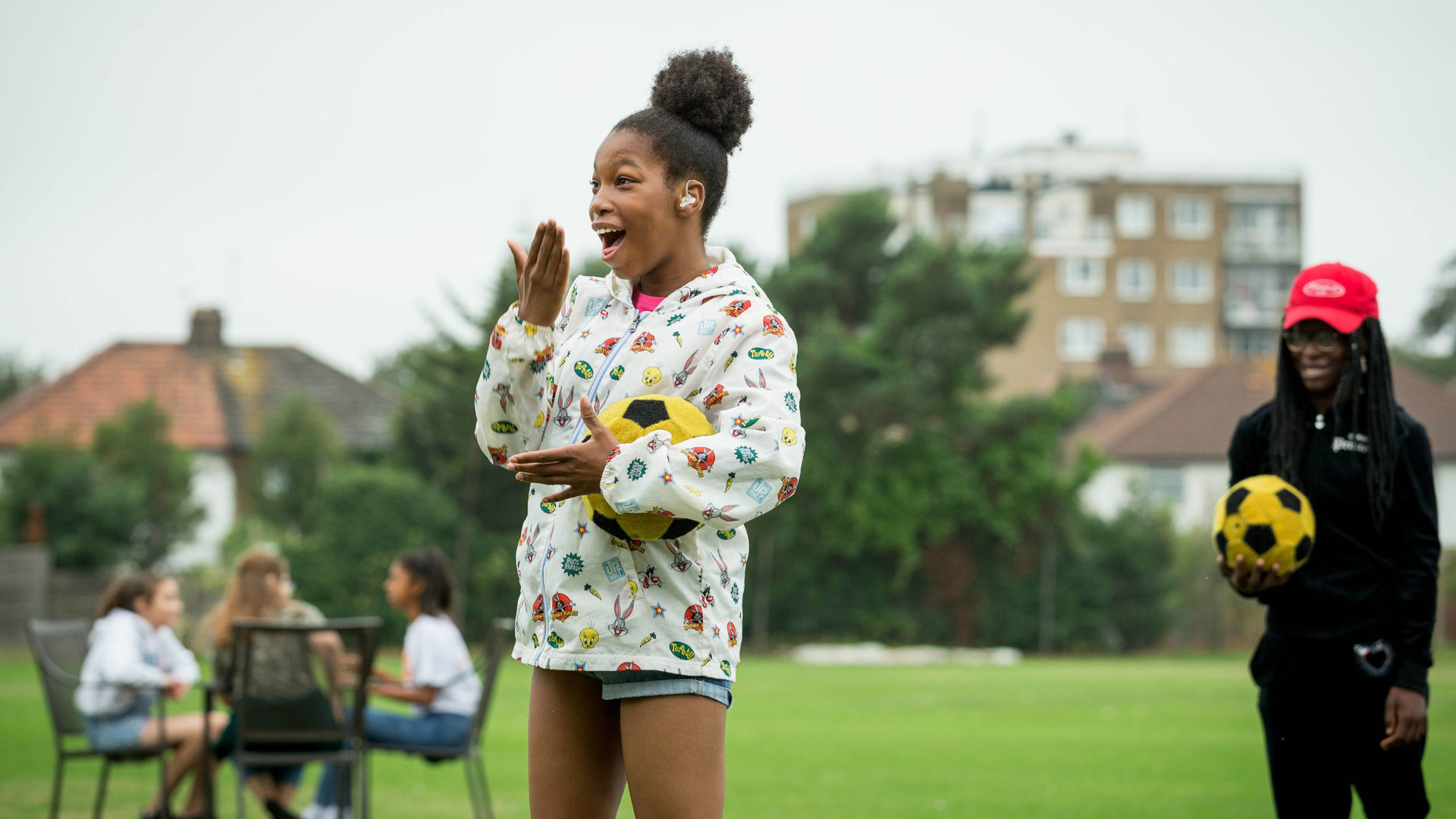
Celebrating the first round of our ‘We Move Fund: Youth Social Action’ programme awards
by Maeve Crawford, Impact Officer
When I was first invited to write this article, I naively thought it would be a breeze. With a background in Education and Creative Writing, I welcomed the challenge and believed I could write something that wouldn’t take too long, would be relatively simple to execute and would convey the experience of a grant manager from a racially marginalised background working for a high profile national funder.
Taking this into account I had to consider a variety of things to ensure I respect the reputation of the organisation, whilst maintaining the voice of truth and authenticity in how I write.
I started to think about the annual telethon that has taken place since the 1980s. Every year, a bright yellow bear we all know as Pudsey appears in our awareness and during the night of the annual Appeal, lights up our TV screens appearing in various locations during the show.
The amounts raised are a magnificent demonstration of the generosity of the British public and brings hope and much needed financial resource to the thousands of projects across the UK funded by Children in Need. However, what is less known about the organisation is the challenge faced during every grant round where decisions are made as to who receives funding and who doesn’t. It is often heart breaking when we have a limited budget in our regions and have to say no to projects that are doing amazing work.
Added to this challenge, the funding sector has identified the disparity in funding for organisations from Black and ethnic minorities who struggle to secure money to continue their much needed and valuable work in their communities. A lower percentage of Black organisations working with Black children and young people receive funding to support their work and have described the challenges they face as a result.
There is so much to be shared about racial discrimination, how it manifests and how people are affected by it on a daily basis. The disproportionate amount of Black children and young people who are negatively impacted in Education, Health and Employment. The high rate of school exclusions, unemployment and treatment within the Criminal Justice System are issues I observed while working within Education and have been researching since I began working at the charity. My research continues, as more information emerges to reinforce how there is still much work to do to tackle this. Young Manchester recently conducted research in collaboration with African Diaspora grassroots organisations, where they had the chance to share barriers they have experienced to access funding There is a “perception that African Diaspora identities were not valued by wider stakeholders and that their invisibility (exacerbated by the BAME acronym) contributed to their feelings of having to compromise their identities, within the funding environment.” Several recommendations have emerged as a result of this research and include suggestions that funders spend more time getting to know local service providers, adopt a more intersectional approach to Diversity, Equity and Inclusion policies and demonstrate greater transparency in terms of funding criteria.
In 2020, during the aftermath of George Floyd’s murder, the attention on Black and racially marginalised people came more to the forefront of our consciousness and it became apparent that we were in the midst of a situation that could no longer remain ignored. Rather than this being a moment in time, it started a movement of discussion about how to redress the imbalance and injustices that are perpetuated throughout society.
Stormzy made an amazing announcement that he was going to pledge a very generous £10 million of his own money to support Black led organisations working with Black children and young people. Inspired by this incredible contribution, BBC Children in Need made a monumental commitment and pledged a further £10 million over ten years to support organisations in the Black community working to support children and young people who face multiple disadvantages.
As soon as I heard this news, I felt a sense of relief and excitement that at last something would be done to redress the imbalance in power and redirect some attention to organisations who typically get forgotten or ignored. I immediately reached out to the team involved in the programme to offer my support.
Two years on and I am filled with enthusiasm and renewed excitement to have seen the large volume of organisations that applied, many of whom applying for the first time. The fund was oversubscribed with 314 applications received to the value of £12,735,592! Of these grants, 66 amazing organisations were awarded to the total of £2,272,035. The work behind the scenes involved a tremendous amount of thinking, planning and meeting to discuss and explore the best ways to reach and support the organisations, to ensure we were indeed able to remove the barriers and approach this fund in a different way.
Being a part of this team provided me with an incredible amount of job satisfaction and personal reward. But, it wasn’t without some challenge! My ethnic background and personal experiences of racism, discrimination and invisibility were triggered at various points during discussions about what we were aiming to achieve. Throughout the last several months, I experienced quite a personal learning journey of discovery. I increased my confidence in how to speak truth to power whilst maintaining a sense of duty and responsibility to the work of the organisation and remaining true to the organisations who need our support.
I feel humbled by the level of commitment by the team to make a real difference to the lives of Black children and young people. The highs and lows of developing an end-to-end fund from scratch is something I had not been involved in before and I have learned so much about what is required. What I witnessed is the dedication and hard work to not only redress the challenges previously mentioned, but also the effort to make sure we do this consciously, respectfully and inclusively.
Throughout all of this, lived experience has been vital. As Booker T. Washington said “No race can prosper till it learns that there is as much dignity in tilling a field as in writing a poem. The older I grow, the more I am convinced that there is no education which one can get from books and costly apparatus that is equal to that which can be gotten from contact with great men and women.” I feel I have had the chance to work with great men and women and am hopeful that this chapter in my life and the life of this organisation will go down in the history books as a time when things really began to change.
